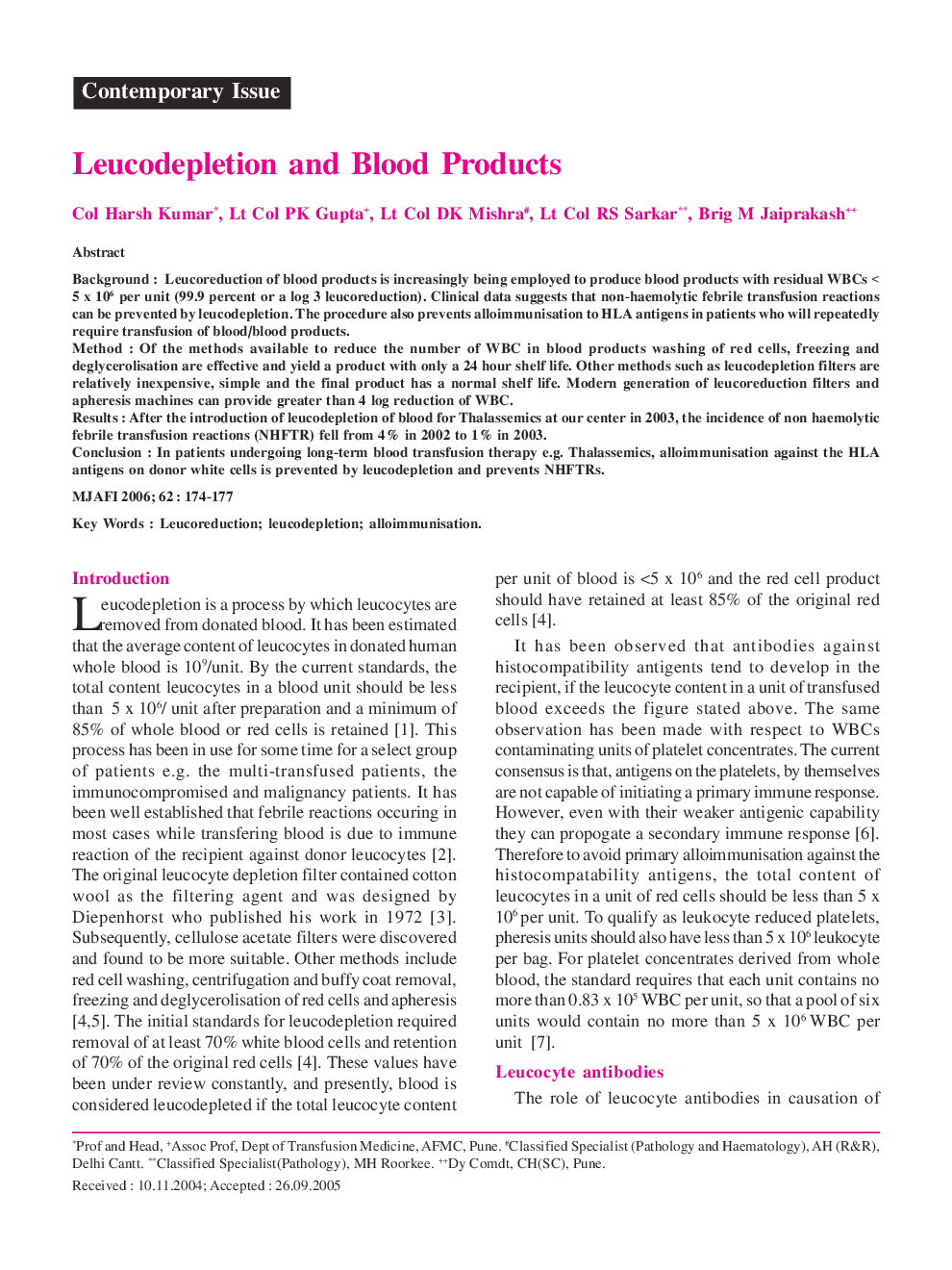| کد مقاله | کد نشریه | سال انتشار | مقاله انگلیسی | نسخه تمام متن |
|---|---|---|---|---|
| 3162317 | 1198625 | 2006 | 4 صفحه PDF | دانلود رایگان |

BackgroundLeucoreduction of blood products is increasingly being employed to produce blood products with residual WBCs < 5 × 106 per unit (99.9 percent or a log 3 leucoreduction). Clinical data suggests that non-haemolytic febrile transfusion reactions can be prevented by leucodepletion. The procedure also prevents alloimmunisation to HLA antigens in patients who will repeatedly require transfusion of blood/blood products.MethodOf the methods available to reduce the number of WBC in blood products washing of red cells, freezing and deglycerolisation are effective and yield a product with only a 24 hour shelf life. Other methods such as leucodepletion filters are relatively inexpensive, simple and the final product has a normal shelf life. Modern generation of leucoreduction filters and apheresis machines can provide greater than 4 log reduction of WBC.ResultsAfter the introduction of leucodepletion of blood for Thalassemics at our center in 2003, the incidence of non haemolytic febrile transfusion reactions (NHFTR) fell from 4% in 2002 to 1% in 2003.ConclusionIn patients undergoing long-term blood transfusion therapy e.g. Thalassemics, alloimmunisation against the HLA antigens on donor white cells is prevented by leucodepletion and prevents NHFTRs.
Journal: Medical Journal Armed Forces India - Volume 62, Issue 2, April 2006, Pages 174–177